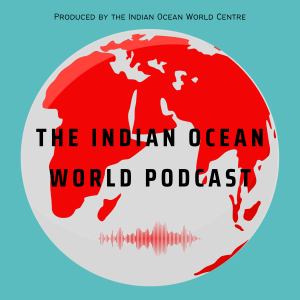
Monday Jul 12, 2021
Jakobina Arch - Coastal Shipping of Tokugawa Japan
Professor Jakobina Arch (Whitman College, Walla Walla, Washington) discusses her research into coastal shipping of Tokugawa Japan (17th century -19th century), and accounts of shipwrecks' survivors as insights on the religious world of sailors. Unraveling how Western and Meiji sources have spoken disparagingly of the designs of the 'bezaisen' or coastal ships of the Tokugawa period, Arch proffers compelling evidence to point out the construction of the 'bezaisen' stemmed from specific environmental exigencies -- they were designed to easily navigate the shallow waters near the coast of Japan. Far from being an unchanging maritime vessel, Arch argues the 'bezaisen' underwent significant innovations during the Tokugawa period, responding to market forces and adapting to better understandings of the coastal environment of Japan. Delving into surviving oral narratives of sailors cast away by shipwrecks, Arch also highlights how the religious world of Japanese sailors caught in storms and/or shipwrecks drew upon a medley of Buddhist and Shinto religious practices to interact with the oceanic and terrestrial environments of Japan. She concludes that accounts of shipwrecks' survivors also form an alternative archive to researching weather and climatic patterns around the Sea of Japan in the early modern period.
For more on Prof. Arch’s publications, see her academic bio: https://www.whitman.edu/academics/majors-and-minors/history/history-faculty/jakobina-k-arch
This podcast was produced with the help of Renée Manderville (Project Manager, IOWC), Archisman Chaudhuri and Philip Gooding (both postdoctoral fellows, IOWC, McGill).
No comments yet. Be the first to say something!